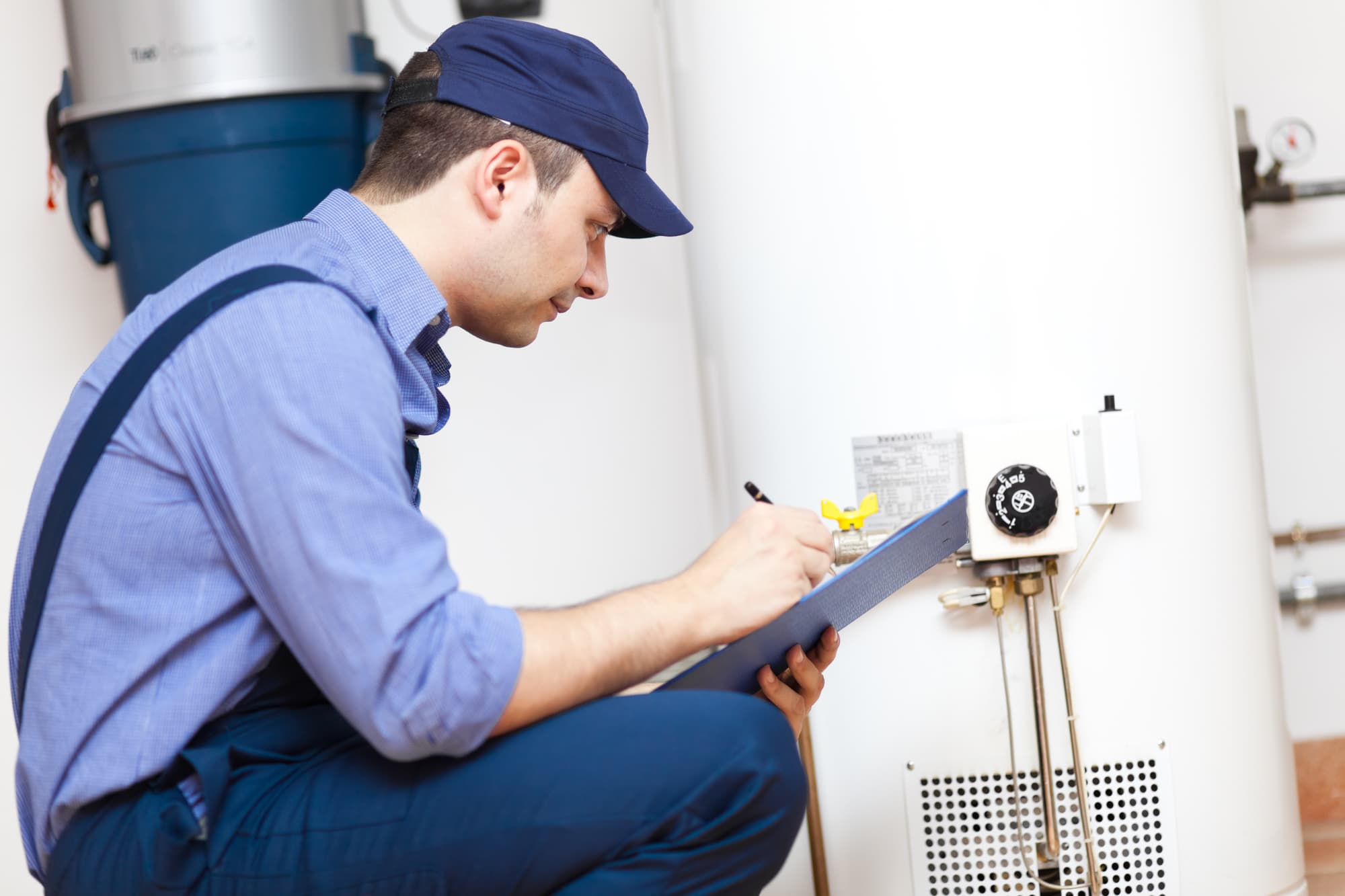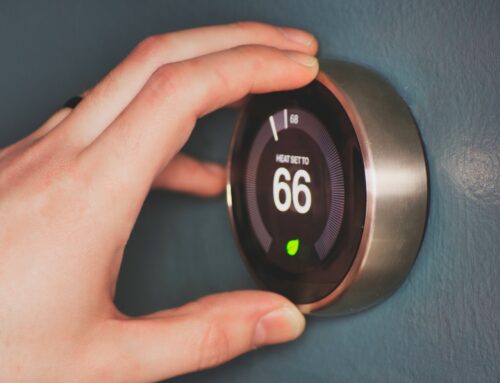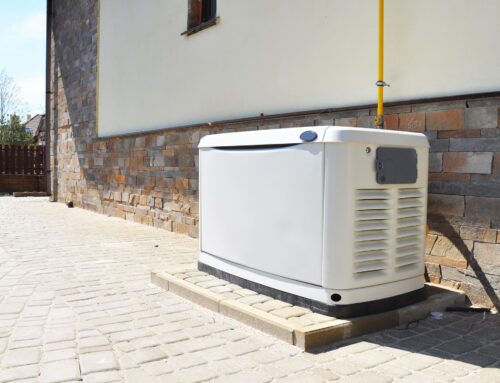Tankless water heaters, also known as gas models, and standard water heaters, including electric models, are two popular options for heating water in residential properties. It’s important for plumbers and homeowners to consider factors such as energy efficiency, cost savings, and the specific needs of your household when choosing between natural gas or electric models.
Tankless water heaters, also known as on-demand or instantaneous water heaters, use advanced technology to heat natural gas only when needed. This gas model is popular among plumbers due to its efficiency and ability to save gallons of water. Gas tankless water heaters, unlike traditional standard water heaters, do not store hot water in a tank. Plumbers often recommend these models for their efficiency and ability to provide hot water on demand. These units are powered by natural gas and can heat water as it flows through the system. Instead, gas tankless heaters provide hot water on demand by quickly heating cold water as it flows through the unit. This equipment requires the expertise of a plumber to install. This electric heat pump offers several advantages, including energy savings and a continuous supply of hot water. It is a great alternative to a gas tankless heater as it utilizes a heat exchanger for efficient heating.
On the other hand, gas tankless water heaters have been around for decades and are known for their reliability and ease of installation. This equipment is a great option for heating water in your house. Whether you saw an advertisement or heard about it from a friend, consider investing in a gas tankless water heater for your home. These heater units store a large volume of hot water in a tank, which is constantly heated to maintain a set temperature. This equipment is essential for keeping your feet warm during the colder months. Plus, with the right advertisement, you can easily find the perfect heater for your needs. While a heater may be more suitable for larger households with higher hot water demand, it can also consume more energy due to heat loss from the stored hot water. This equipment is important to consider when looking at energy consumption in your home. Additionally, advertisements for heaters often highlight their efficiency and cost-saving benefits.
In the following sections, we will delve deeper into the differences between tankless and standard water heaters, discussing key aspects such as installation requirements, energy efficiency ratings, lifespan expectancy, maintenance needs, cost considerations, equipment, advertisement, and more. So let’s explore these options further to help you determine which one, whether it be a new water heater, tankless water heater, demand water heaters, or electric heat pump, best fits your specific needs.
Understanding Water Heater Systems
Tankless water heaters and standard water heaters are two common types of systems used to provide hot water in homes. Each type of water heater, including conventional water heaters, electric heat pumps, and tankless water heaters, has its own unique features and benefits, making it important to understand how they work and what sets them apart.
Tankless Water Heaters
Tankless water heaters, also known as on-demand water heaters, heat water directly as it is needed without the use of a storage tank. When you turn on a hot water tap, cold water flows through a heater within the unit, where it is rapidly heated to the desired temperature. This means that you never run out of hot water since it is produced on demand by the heater. Additionally, the heat pump ensures efficient heating.
One advantage of tankless water heaters is their energy efficiency. Since they only heat water when it is needed, there is no standby heat loss like with traditional tank storage water heaters. This can result in significant energy savings over time.
Another benefit of tankless systems is their compact size. Tankless water heaters, unlike conventional water heaters, do not require a large storage tank. This means they take up less space and can be installed in more convenient locations such as closets or utility rooms. Additionally, heat pump technology can further enhance the efficiency of tankless water heaters.
Standard Water Heaters
Standard water heaters, also referred to as storage tank water heaters, store and continuously heat a large volume of water in a tank. The heated water from the heater remains in the tank until it is used throughout your home for various purposes like showering or washing dishes.
One advantage of standard water heaters is their affordability. Conventional water heaters tend to have lower upfront costs compared to tankless models, making them an attractive option for homeowners on a budget. However, heat pump water heaters offer a more energy-efficient alternative.
Standard heater systems can deliver hot water from the heater at multiple faucets simultaneously without any fluctuations in temperature. This makes them suitable for larger households with high hot-water demand, especially when a heater is needed.
However, one drawback of standard storage tank water heaters is the potential for standby heat loss. Tankless water heaters do not have this issue. Since the heater stores hot water, it constantly loses heat even when not being used, resulting in wasted energy over time.
Making an Informed Decision
When deciding between a tankless water heater and a standard water heater, it’s crucial to consider your specific needs and preferences. If energy efficiency and endless hot water from a tankless heater are top priorities, a tankless system may be the ideal choice. On the other hand, if upfront cost and simultaneous hot-water usage are more important factors, a standard water heater might be the better option.
Ultimately, consulting with professional plumbers can provide valuable insights into which type of water heater is best suited for your home.
Tankless vs Standard Water Heaters: Core Differences
Tankless water heaters and standard water heaters differ primarily in the presence or absence of a storage tank. Let’s explore the core differences between these two types of water heating systems: heater.
Instant Hot Water vs Heat-Up Time
One significant difference is how quickly each type of heater provides hot water. Tankless heaters, as the name suggests, heat water on demand and deliver it instantly to your faucets or showers. On the other hand, standard water heaters with storage tanks may require some time to heat up the stored water before it can be used.
Unlimited Supply vs Limited Capacity
Another crucial distinction lies in the capacity of the heater to supply hot water. Tankless systems offer an unlimited supply of hot water since they heat the water as it flows through the heater unit. This means you won’t run out of hot water no matter how much you use the heater. In contrast, standard water heaters have a limited capacity based on the size of their storage tanks. Once all the stored hot water is depleted, you may need to wait for more to be heated before you can continue using hot water.
Energy Efficiency and Cost Savings
Tankless water heater units are generally more energy-efficient compared to standard models with storage tanks. Since tankless systems only heat water when needed, they don’t waste energy continuously keeping a large amount of stored hot water at a constant temperature. This efficiency can result in cost savings over time by reducing energy consumption with tankless water heaters compared to storage tank water heaters.
Space Considerations
Standard models with tankless water heaters typically require more space due to their larger size and need for adequate clearance around them for safety reasons. On the other hand, tankless water heater units are compact and can be mounted on walls or installed in smaller spaces without taking up much room.
Lifespan and Maintenance
Tankless water heater units tend to have a longer operational life compared to standard models with storage tanks. Tankless water heater systems can last up to 20 years or more with proper maintenance, while standard water heater units typically have a lifespan of around 10-15 years. Tankless water heaters may require less maintenance since they don’t have a storage tank that can accumulate sediment and require periodic flushing.
Initial Cost and Installation
While tankless water heaters offer long-term energy savings, they generally have a higher upfront cost compared to standard models. The installation of tankless water heaters can also be more complex and may require upgrades to the electrical system or gas lines depending on the existing infrastructure in your home.
Energy Efficiency: Tankless vs Standard Models
Tankless water heaters and standard water heaters differ significantly in terms of energy efficiency. Let’s explore how these two types compare.
Tankless models are more energy-efficient
One of the key advantages of tankless water heaters is their superior energy efficiency. Unlike standard models, which continuously heat and store a large volume of hot water, tankless models only heat the required amount of hot water on demand. This means that they do not experience standby energy loss associated with continuously heating stored hot water, even when it is not being used.
Standby energy losses in standard models
Standard water heaters, also known as storage tank models, can suffer from standby energy losses due to the constant heating of stored hot water. Even if you’re not using any hot water at a particular moment, the standard model will continue to maintain the temperature of the entire tank. This results in unnecessary energy consumption and increased utility bills for both tankless water heaters and storage tank water heaters.
Switching to a tankless model for significant savings
By switching from a standard water heater model to a tankless water heater model, homeowners can experience significant energy savings over time. Since tankless models only heat water as needed, they eliminate the need for continuous heating and reduce standby energy losses. This translates into lower energy costs and reduced environmental impact for storage tank water heaters.
For example, let’s consider an average household that uses 40 gallons of hot water per day. With a standard water heater storage tank model, this entire volume would need to be heated and maintained at a constant temperature throughout the day, regardless of actual usage. In contrast, a tankless model would only heat the necessary amount of hot water when it is required. This targeted approach minimizes wasted energy and maximizes efficiency.
Furthermore, electric tankless water heater models provide additional benefits in terms of efficiency. Electric storage tank water heaters tend to have higher overall efficiency compared to gas storage tank water heaters since they don’t lose heat through flue gases. This can result in even greater energy savings and reduced operating costs for your water heater.
Analyzing Costs: Initial and Long-Term Considerations
In comparing tankless water heaters to standard water heaters, one important aspect to consider is the costs involved. Let’s delve into the initial and long-term considerations associated with both types of water heater models.
Tankless Models: Higher Upfront Costs, Long-Term Savings
Tankless water heaters are known for their advanced technology and energy efficiency. However, this water heater innovation often comes with a higher upfront cost compared to standard models. The installation cost of a tankless water heater unit can be more expensive due to the complexity of the system and the need for professional installation.
Despite the initial investment, tankless water heater models offer potential long-term cost savings. These units heat water on-demand, eliminating the need for a storage tank that constantly consumes energy to keep water hot. By only heating water when needed, tankless models can significantly reduce energy consumption and lower utility bills over time.
Standard Models: Affordable Purchase Price, Potential Operating Cost Increase
Standard water heaters, on the other hand, tend to have a more affordable purchase price compared to their tankless counterparts. This lower upfront cost may make them an attractive option for those on a tight budget or looking for a quick replacement.
However, it’s essential to consider operating costs in addition to the initial purchase price. Standard models typically store and continuously heat large amounts of water in their tanks. This constant heating can lead to higher energy consumption and subsequently higher utility bills over time.
While standard models may be cheaper initially, they could potentially result in increased operating costs in the long run due to their less efficient design.
Weighing Your Options
When deciding between a tankless or standard water heater, it’s crucial to evaluate your specific needs and circumstances. Consider factors such as your budget, household size, hot water usage patterns, and future plans.
If you have a larger household with high hot water demand or frequently run multiple appliances simultaneously (such as showers, dishwashers, and washing machines), a tankless model might be worth the higher upfront cost. The energy savings and lower utility bills can offset the initial investment over time.
On the other hand, if you have a smaller household with lower hot water needs or prefer a more budget-friendly option, a standard water heater may be suitable. Just keep in mind that you may experience higher operating costs due to its less efficient design.
Evaluating Performance and Hot Water Usage
To determine which type of water heating system is best for your household, it’s crucial to evaluate the performance and understand your hot water usage patterns. Let’s delve into the factors that differentiate tankless water heaters from standard water heaters.
Endless Hot Water Supply
Tankless systems have a distinct advantage. Unlike standard systems that store a limited amount of heated water in a tank, tankless systems heat the water as it flows through the unit. This means you’ll never run out of hot water, making them ideal for households with high hot-water usage or larger families.
Meeting Hot Water Demands
Standard water heaters may struggle to keep up with the demands of larger households or during peak usage times. Since they rely on preheated water stored in a tank, there is a finite amount available at any given time. If multiple people are using hot water simultaneously—for example, if someone is taking a shower while another person is running the dishwasher—the supply may be depleted temporarily until more heated water can be generated.
Understanding Your Hot Water Needs
To determine which type of system will perform better for you, it’s important to assess your specific hot water needs and usage patterns. Consider factors such as the number of bathrooms in your home, how many people live there, and typical daily activities that require hot water—such as showers, laundry, or running multiple taps simultaneously.
Consumer Reports suggests calculating your peak-hour demand by estimating how much hot water you use during the busiest hour(s) of a typical day. This will give you an idea of whether a tankless system can meet your requirements or if a standard system might be more suitable.
Flow Rates and Heat Loss
Flow rate refers to how much hot water can be delivered per minute by a particular unit. Tankless systems typically have higher flow rates compared to standard systems due to their ability to heat water on demand. This means they can handle multiple hot water outlets simultaneously without a significant reduction in temperature or pressure.
Another factor to consider is heat loss. With standard systems, there can be some heat loss as the heated water sits in the tank waiting to be used. Tankless systems eliminate this issue since they only heat the water when it’s needed, reducing energy waste and ensuring maximum efficiency.
Pros and Cons: Tankless Water Heaters
Pros of Tankless Water Heaters
Tankless water heaters offer several advantages over standard water heaters.
Firstly, they are energy-efficient. Unlike traditional tank-based water heaters that constantly heat and store a large volume of water, tankless water heaters only heat the water as needed. This on-demand heating process reduces energy consumption, resulting in lower utility bills.
Secondly, tankless water heaters are space-saving. Traditional water heaters require a significant amount of space due to their large storage tanks. In contrast, tankless models are compact and can be mounted on walls or placed in tight spaces, freeing up valuable floor space.
Another benefit is their longer lifespan. On average, tankless water heaters have a lifespan of 15-20 years, which is considerably longer than the 10-15 year lifespan of standard units. This extended longevity can save homeowners money in the long run by reducing the frequency of replacements.
Lastly, tankless water heaters provide an endless supply of hot water. Since they heat the water as it flows through the unit rather than relying on stored hot water like traditional models, there is no risk of running out during long showers or when multiple faucets are being used simultaneously.
Cons of Tankless Water Heaters
While tankless water heaters offer numerous advantages, there are some drawbacks to consider before making a purchase decision.
One potential downside is the higher upfront cost compared to standard units. Tankless models tend to be more expensive initially due to their advanced technology and installation requirements. However, it’s important to note that these higher costs can often be offset by energy savings over time.
Another limitation is the limited flow rate for simultaneous use. While tank-based systems can handle multiple appliances running simultaneously without affecting performance significantly, tankless units may struggle to meet high demands if multiple faucets or showers are used concurrently. It’s crucial to select an appropriately sized tankless water heater based on the household’s hot water needs.
Some tankless water heaters may require additional equipment, such as a recirculation pump, to ensure instant hot water at all fixtures. This can add to the overall cost and complexity of installation.
Advantages and Disadvantages: Standard Water Heaters
Advantages: Lower Initial Cost, Suitable for Smaller Households with Lower Hot-Water Demands, Easy Installation
Standard water heaters, also known as conventional water heaters, offer several advantages that make them a popular choice for many households. One significant advantage is their lower initial cost compared to tankless water heaters. These traditional units are generally more affordable to purchase and install, making them an attractive option for homeowners on a budget.
Another advantage of standard water heaters is that they are suitable for smaller households with lower hot-water demands. If you live alone or have a small family, you may not require large amounts of hot water simultaneously. In such cases, a standard water heater can adequately meet your needs without the need for additional features or higher capacity.
The installation process of standard water heaters is relatively easy. They can be installed in most homes without requiring any major modifications or complex procedures. This ease of installation makes them convenient for homeowners who want a straightforward and hassle-free setup.
Disadvantages: Standby Energy Loss, Limited Hot Water Supply if Storage Tank Capacity is Exceeded
Despite their advantages, standard water heaters also come with some disadvantages that should be considered before making a decision. One significant drawback is standby energy loss. Unlike tankless water heaters that heat water on-demand, standard units continuously maintain a supply of hot water in their storage tanks. This means that even when you’re not using hot water, the unit will continue to consume energy to keep the stored water heated. This standby energy loss can result in increased utility bills over time.
Another disadvantage of standard water heaters is their limited hot-water supply if the storage tank capacity is exceeded. Once the stored hot water runs out, you will need to wait for the tank to refill and heat up again before you can access more hot water. If your household frequently requires large amounts of hot water within a short period, such as during busy mornings or when multiple people are showering simultaneously, you may experience a shortage of hot water.
To mitigate this issue, some homeowners opt for larger storage tanks to ensure an ample supply of hot water. However, this can increase the initial cost and take up more space in your home. It’s essential to consider your household’s hot-water needs and usage patterns before deciding on a standard water heater.
Making the Choice: Factors to Consider
There are several factors you should consider. By evaluating these factors, you can make an informed decision that best suits your household’s needs. Let’s dive into the key considerations.
Household Size and Hot-Water Consumption Patterns
Consider the size of your household and your hot-water consumption patterns when deciding between tankless and standard models. Tankless water heaters are known for their on-demand hot water supply, making them ideal for households with high demand or larger families. These units heat water as it flows through, ensuring a continuous supply of hot water without any storage limitations.
On the other hand, standard water heaters store a specific amount of hot water in a tank. If you have a smaller household or lower hot-water consumption, a standard model may be more suitable. However, keep in mind that if multiple people need hot water simultaneously or if you frequently run out of hot water, a tankless option might be more beneficial.
Budget Considerations: Upfront Costs vs Long-Term Savings
Evaluate your budget and weigh the upfront costs against long-term savings in energy bills. Tankless models tend to have higher initial costs compared to standard models due to their advanced technology and installation requirements. However, they can provide significant energy savings over time by only heating water when needed.
Standard models may have lower upfront costs but typically consume more energy as they continuously maintain the temperature of stored hot water. Consider your long-term financial goals and calculate potential energy savings when making your decision.
Available Space in Your Home
Assessing the available space in your home is crucial when choosing between tankless and standard models. Tankless water heaters require less physical space as they do not have large storage tanks like traditional models. This makes them ideal for homes with limited space or those looking to maximize their usable area.
If you have a small utility room or limited installation options, a tankless water heater can be a space-saving solution. On the other hand, standard models require more space for the storage tank, so ensure you have adequate room for their installation.
Life Expectancy
Consider the life expectancy of both tankless and standard water heaters. Tankless models generally have a longer lifespan compared to standard models. While standard water heaters typically last around 10-15 years, tankless units can provide hot water for up to 20 years or more with proper maintenance.
Gas vs Electric Heaters: Selecting the Best for Your Needs
Gas-powered tankless water heaters and electric tankless water heaters both have their advantages and considerations. Let’s compare the two options to help you determine which is best suited for your needs.
Gas-Powered Tankless Heaters
Gas-powered tankless water heaters are known for their high flow rates, providing a continuous supply of hot water. These heaters use natural gas or propane as fuel sources, ensuring efficient heating performance. However, it’s important to note that gas-powered tankless heaters require proper ventilation and a dedicated gas supply line.
The higher flow rates of gas-powered tankless heaters make them ideal for larger households or situations where multiple hot water outlets may be in use simultaneously. If you have a busy household with high hot water demand, a gas model might be the better choice for you.
Electric Tankless Heaters
Electric tankless water heaters offer some distinct advantages over their gas counterparts. They are generally easier to install since they don’t require ventilation or a dedicated gas supply line. Instead, they rely on electricity as their power source.
However, it’s essential to consider the electrical capacity of your home when opting for an electric tankless heater. Depending on your electrical setup, you may experience lower flow rates compared to gas models. It’s crucial to ensure that your electrical system can handle the demands of an electric tankless heater before making your decision.
Factors to Consider
When selecting between gas and electric tankless water heaters, several factors come into play:
-
Availability of Fuel Sources: Consider whether natural gas or propane is readily available in your area. If not, an electric model may be more practical.
-
Installation Requirements: Evaluate the installation requirements of each type of heater based on your home’s infrastructure and capabilities.
-
Desired Performance: Determine how much hot water you need at any given time. Gas-powered heaters offer higher flow rates, making them suitable for larger households or situations with high hot water demand.
-
Energy Efficiency: Compare the energy efficiency ratings of gas and electric tankless water heaters to determine which will provide more cost-effective operation in the long run.
By carefully considering these factors, you can make an informed decision on whether a gas-powered or electric tankless water heater is the best choice for your needs.
Partner With Your Local Water Heater Installer
When deciding between tankless water heaters and standard water heaters, it is crucial to consider your specific needs, budget, and long-term goals. Tankless water heaters offer benefits such as energy efficiency, space-saving design, and endless hot water supply. On the other hand, standard water heaters are more affordable upfront and may be easier to install.
To make the best decision for your home, assess your hot water usage patterns, evaluate the initial costs versus long-term savings, and consider the available fuel options. Consult with a professional plumber or heating specialist who can provide expert advice based on your unique circumstances.
By understanding the core differences and weighing the pros and cons of each type of water heater, you can confidently choose the option that aligns with your priorities. Whether you prioritize energy efficiency, cost-effectiveness, or convenience, selecting the right water heater will ensure a reliable hot water supply for years to come.
Contact Us For Your Sonoma County Water Heater Installations
Frequently Asked Questions
What is the difference between tankless water heaters and standard water heaters?
Tankless water heaters heat the water as it flows through the unit, providing hot water on demand. Standard water heaters store and continuously heat a large volume of water in a tank.
Which type of water heater is more energy-efficient?
Tankless water heaters are generally more energy-efficient because they only heat the water when needed, eliminating standby heat loss. Standard water heaters continuously use energy to keep the stored water hot.
Can tankless water heaters provide enough hot water for multiple uses simultaneously?
Yes, tankless water heaters can provide enough hot water for multiple uses simultaneously. They have a high flow rate and can supply continuous hot water to multiple appliances or showers at once.
Are tankless water heaters more expensive than standard ones?
Initially, tankless water heaters may have a higher upfront cost compared to standard ones. However, their energy efficiency can result in long-term savings on utility bills, making them cost-effective over time.
How long do tankless and standard water heaters typically last?
Tankless water heaters have a longer lifespan than standard ones. On average, tankless models can last up to 20 years or more with proper maintenance, while standard models usually last around 10-15 years.





